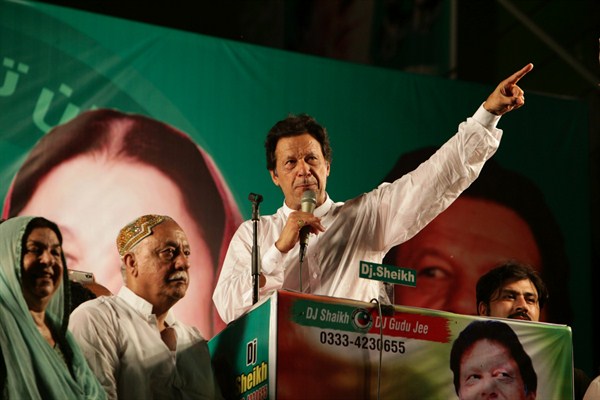Pakistan’s new government, which takes office on Aug. 18, will confront a raft of pressing challenges at home. They include a looming economic crisis; an unhappy political opposition, led by the previously ruling PMLN party, which could seek to obstruct the government’s legislative measures; and the omnipresent threat of extremism.
Foreign policy won’t be the initial focus of presumptive Prime Minister Imran Khan’s administration in Islamabad. Still, Khan faces five major foreign policy tests requiring immediate attention. How he responds to them will offer an early read on his government’s thinking on foreign policy. His actions will also help determine the extent to which the Pakistani military, which has long held a veto on foreign policy, may try to shape the agenda of the centrist Pakistan Tehreek-e-Insaf party, or PTI, now in power. Finally, Khan’s early moves on foreign policy will help determine the trajectory of the broader civil-military relationship in Pakistan.
The first challenge is working with the United States. Islamabad’s relationship with Washington has struggled so far under the Trump administration, which suspended security assistance earlier this year. Ties could worsen under Khan, who has long denounced U.S. policy in Pakistan in the strongest terms. However, Pakistan’s army, which values the long history of U.S. military aid, and particularly the advanced equipment that it can’t get from China or other close defense partners, is keen to maintain a workable relationship with Washington.

